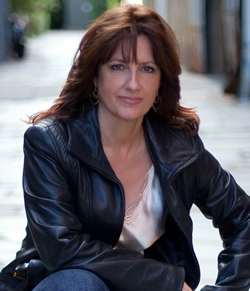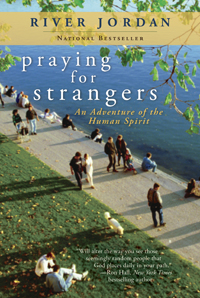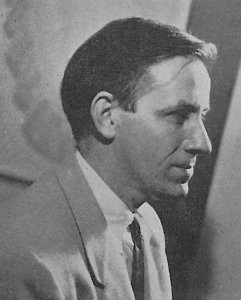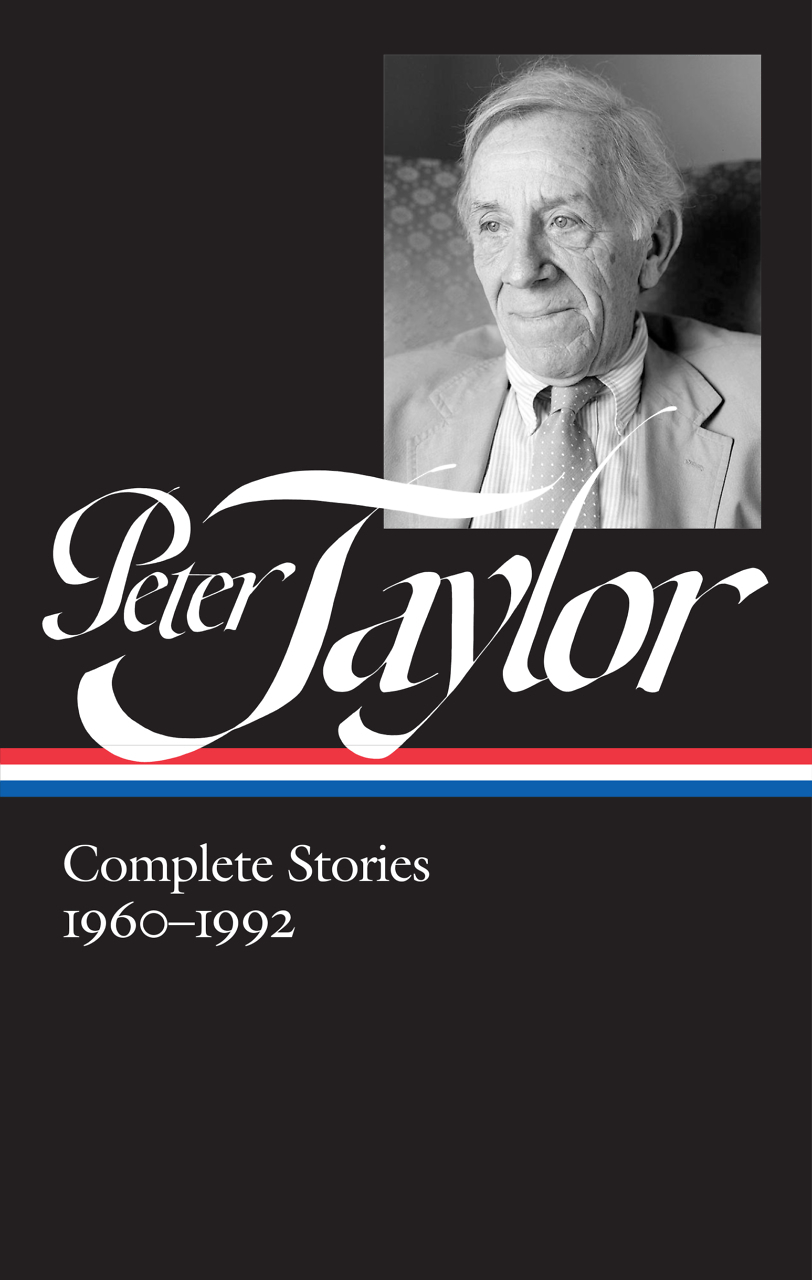No Strangers
A new spiritual practice for novelist River Jordan leads to a surprising memoir
On New Year’s Eve, 2008, Nashville author River Jordan faced one of the most frightening experiences of parenthood. In the coming weeks, both of her sons would leave for war, one to Iraq and the other to Afghanistan. With her family gathered for a reunion at a ski resort, Jordan prayed that this would not be the last time they were all together.
And then she continued to pray, for her sons and for others. Jordan made a resolution that New Year’s Eve to pray for a stranger every day for a year. While her sons were in harm’s way, she would focus her energy and her prayer on one person she encountered each day. The stories of those encounters are gathered in her new book, Praying for Strangers: An Adventure of the Human Spirit. In the intervening years, Jordan’s very personal resolution has developed into something of an Internet phenomenon, as visitors to her website share their own stories, download e-cards, and read about Jordan’s continuing adventures in prayer. Jordan spoke with Chapter 16 in advance of her book launch at BookMan/BookWoman in Nashville on April 6.
Chapter 16: Can you tell us how were you reared to pray? How has prayer evolved for you?
Jordan: I wasn’t reared to pray. My sister teaches her kids: they sit down at the table and say the blessing and they say their prayers at night. I don’t remember that. Now I’m sure at Thanksgiving somebody asked grace, but nighttime prayers were not a part of my existence. My grandmother believed; that’s all I know. It’s one of those things where you have that Southern home, and you have the big Bible that collects dust that sits on the table. So the Bible was ever-present, and she went to a little primitive Baptist country church, and I would go with her, but I just kind of napped while the preacher did his thing. And it was a rather peaceful experience because I had my head in her lap.
 I think I’m just one of the people that came into this world believing and I think that that makes it easier on me. I believed as a child; that was just somehow part of my spiritual DNA. When I was about eleven or twelve years old, my mother joined the Episcopal church, and it was the perfect expression for the faith that I felt inside of me. The reverence. Going to the church. You have the sense of being in a holy space. It just fit me to a T.
I think I’m just one of the people that came into this world believing and I think that that makes it easier on me. I believed as a child; that was just somehow part of my spiritual DNA. When I was about eleven or twelve years old, my mother joined the Episcopal church, and it was the perfect expression for the faith that I felt inside of me. The reverence. Going to the church. You have the sense of being in a holy space. It just fit me to a T.
Chapter 16: Your prayer now, I gather from the book, is a nightly ritual for you?
Jordan: There are days I try to move through a wave of prayer like moving through water, but I do keep a nightly ritual. Before I go to sleep, I say, “That person I saw today sitting at that table in that restaurant, blessings for them.” And honestly wishing for good things in their life, and praying for good things in their life. And that’s been a good experience, because in that moment, I actually care. A lot of times people will say, “Oh yeah, we’ll pray for you.” But praying for a stranger, and really caring what happens to them, that’s a different experience. It affects the way you see people.
Chapter 16: How has it changed you?
Jordan: I talk to people more. I mean I literally turn to people, I guess everywhere. Say I’m in a store and I’m shopping for a purse, and a woman walks up next to me. I might just say, “Hey, how’s it going? Are you having a good day? How are you doing today?” I’m not afraid to make connections with people from this bubble that we call our lives. I’ve always been just very introverted; I’m still very introverted—I’m just the kind of person that recharges with quiet walks on the beach. [This spiritual practice] has changed the way I react to people. Even when it’s a telemarketer calling late at night, and I want to growl at them, I’ll think, “What if this was my stranger today?” And then I’ll smile and I’ll have patience in my voice that I really only have for strangers. Because I’ll have a significant spiritual moment in the grocery store with someone, and then I’ll go out in the parking lot, and someone has got their car door open and getting their groceries out and I’ll be like, “I know you didn’t just take the paint off my Jeep.” So I can go from having this deep spiritual connection to going, “You have got to be kidding me.” It certainly hasn’t worn the human off of me in any way whatsoever. I’m not transforming into a higher spiritual being, but I am transforming.
Chapter 16: Do you still pray for a stranger every day?
Jordan: Yeah. People love to hear it, [but] I don’t think it is earth shattering for me not to tell someone. I think it’s more important that you pray for someone for your own sake, that you take a moment outside of your life, and you find someone, and you say prayers for them. When you do that, it does open you up to the world outside and what’s going on around you.
Chapter 16: You started this project as a way of taking yourself out of your own fears when both your sons were being deployed. I wonder how they are now and what their response has been to the book.
 Jordan: I started it really in spite of my fears and my focus on them. Both were being deployed, one to Iraq and one to Afghanistan, and I look back now and realize I was an insane mother. In the days leading up to that, I kept saying, “Isn’t there a rule against this? I saw Saving Private Ryan and I think there’s a rule against this.” And they kept saying, “No, mom. There’s no such rule.”
Jordan: I started it really in spite of my fears and my focus on them. Both were being deployed, one to Iraq and one to Afghanistan, and I look back now and realize I was an insane mother. In the days leading up to that, I kept saying, “Isn’t there a rule against this? I saw Saving Private Ryan and I think there’s a rule against this.” And they kept saying, “No, mom. There’s no such rule.”
Something else happened [too]: I encountered a little boy on December 31, and I knew he needed help, and he disappeared before I could call the authorities. And he was just a little, little boy. And there was nothing I could do that night except cry, and I thought, “I can’t do anything but say a prayer for that baby. Nothing.” And then it was like, “Okay, fine. I’m gonna do this. I’m gonna do this for a year.” And then I tried to shed it like skin and get rid of it as quick as the year was over and go, “Whew, I’m done with that.” But as I began looking at people, I couldn’t do it. I couldn’t quit. It has become an integrated discipline. The boys, as we call them, they’re men, of course, are doing fine. They’re both stateside right now, but one of my sons has orders to deploy to Afghanistan in June.
Chapter 16: Because you’ve written fiction before this one, I wonder how the observational skills that you use for writing fiction translate into this experience.
Jordan: Storytelling. I know how to listen to a story and I know how to capture a story. And so it’s more the details of someone, the nuances of their expressions or their body language. The writing process was very different [for this book]. The telling of it was very difficult for me. I’m comfortable in writing fiction, in losing myself in story and losing myself in other characters, letting them really express themselves through me. [But] this was me revealing personal things about myself, about my day, about my life, about my worries, about my frailties and concerns. I didn’t like that at all. I don’t like being exposed or vulnerable. [In] the early interviews, [someone] would ask me something, and I would think, “Well, that’s really personal!” And then I realized, “[You’ve] written this very personal memoir-type book, so get over it, you know. It’s published now. The pages are out there, so you need to be able to answer the questions.”
Chapter 16: You didn’t start the project with a book in mind, right?
Jordan: Oh the opposite! I never planned to tell any of this, and when I first started, the resolution that I adopted, I never planned to tell a soul that I was praying for them. That was just what happened. But then I told someone, and their reaction was so overwhelmingly positive. And then I thought “Okay, I’ll tell someone else. Obviously people need to hear.” But I never planned to write it down. And it was Owen, my husband, who said, “Are you kidding me? You’ve gotta start writing this stuff down,” because I’d go home and tell him the stories.
Chapter 16: The personal connection you make from telling someone and getting their response adds a great deal to the book. Have you kept up with the people, or see them around town? Do you think about them?
Jordan: Oh, I do. I think about them, not consciously, but occasionally I’ll just be sitting on my porch and someone from two years ago, their face will come up. They’re like eternal snapshots that are tattooed on my soul; they’re just there. It’s really weird to me that [even in a] brief exchange with someone, the memory can last that long. I mean, trust me, I can’t find my car keys, my glasses. So for me to be able to remember these people, it’s really amazing.
Occasionally I’ve bumped into people. I don’t try to follow them or keep up with them but I sometimes long to. I’ll think, “Oh I wish I had that woman’s phone number. I wonder how she’s doing.” And then occasionally I’ve had wonderful occurrences where I’ve bumped into them, even in a different city. I bumped into one woman standing in front of a store in a different city where I’d gone and I was lost. I pulled off, and then I walked past her and I thought, “Wait a minute. You’re my stranger from the city.” And she recognized me. And I gave her a hug and we talked for a minute.
Chapter 16: One reason I think that this has really struck a chord in people is that we live in a time when religion is seen as very divisive, and this is a unifying thing. How do you develop tolerance, or how do we develop tolerance, collectively?
Jordan: There was a quote that I retweeted this morning from John Wesley, [and] it was exactly about that, tolerance. Okay, let’s recognize our differences, he said. So we’re different on everything. Can we agree to love the same?
When I see somebody’s face, and I know that’s the person that I’m gonna pray for, I don’t know how they voted. I don’t know what bumper stickers are on their car. I don’t know whose yard sign is in their yard. I don’t know what church they go to or don’t go to. And I think right there is the beginning of a type of unification. Differences aside, you start with love. And you start right there saying, “Your life matters. I care, and I’m saying a prayer and I truly care what happens to you this day and this year.” And that has nothing to do with any of that other circumstantial stuff that we get bogged down in. This is something every single person can do, every single day, and have a profound experience in the process.
Chapter 16: Do you still fight that introverted tendency?
Jordan: I’ve grown tremendously, but I still fight that introverted feeling every time my husband invites me to go to dinner with other people. I am still just as much of an introvert. I would rather sit in the back corner, drinking a latte and writing in my journal and watching people, but now I feel compelled at some point during the day to connect with someone. I think it really has become a discipline. We all have bad days where things go wrong or we get hurt, but I find a stranger—to save my own self, I find someone to pray for. And then to hear them say, “You don’t know how I needed this. It does my heart good.” And I think, “Okay, if I didn’t do anything else today, if I can’t even tie my shoes today, I can do this one thing.”
[This interview originally appeared on March 31, 2011.]

Serenity Gerbman has served as Director of Literature and Language Programs at Humanities Tennessee since 2001. A recipient of the Malcolm Law Award for Feature Writing from the Tennessee Press Association, she lives in Murfreesboro.




